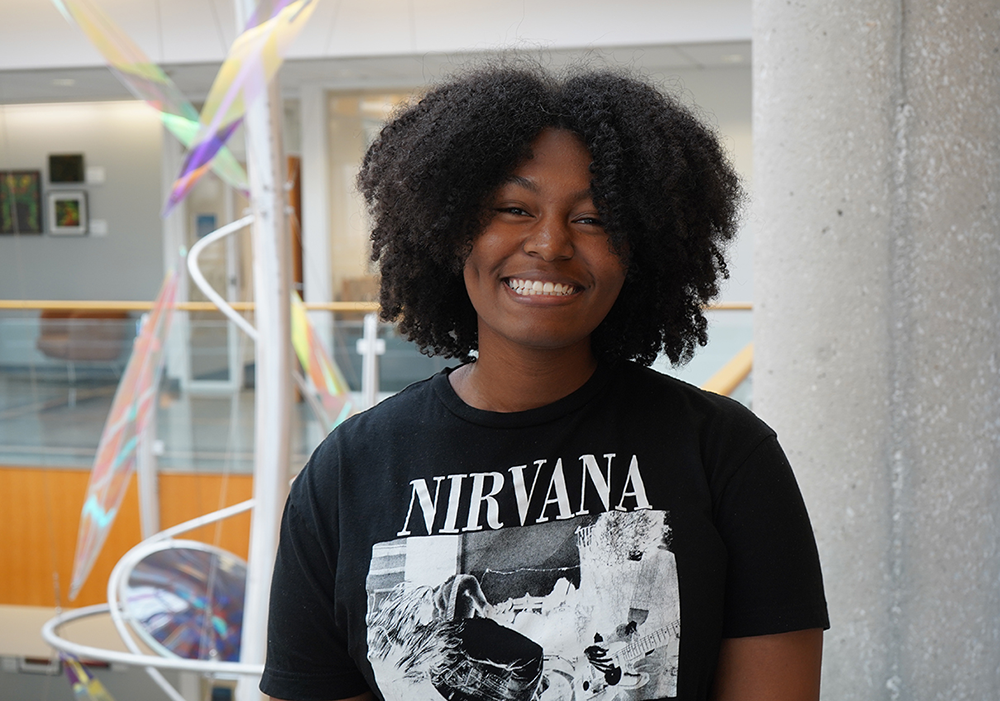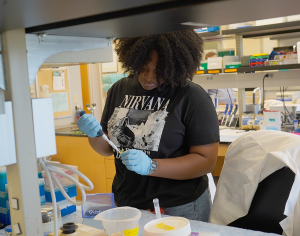
A double major at the University of Missouri, Michelle Woolridge’s degree programs are an extension of her educational journey.
Part of a Spanish immersion elementary school, Woolridge spent her youth learning both English and Spanish. Once she began high school, Woolridge was part of the International Baccalaureate (IB), an extensive educational program that helps students develop a variety of skills for the future, where she was heavily involved in biology.
At Mizzou, Woolridge is majoring in romance languages, with an emphasis in Spanish, and biological sciences.
“I really enjoyed both areas of study, so I thought I would continue on those paths when I chose to attend MU,” said Woolridge, who just finished her freshman year at Mizzou. “And I’m so glad that I made the decision to pursue both degrees.”

While interesting degree programs helped bring Woolridge to Mizzou, she said the scholarship opportunities were the primary reason she chose to become a Tiger. Woolridge, who is from Tulsa, Oklahoma, earned one of MU’s premier scholarships, too, the Stamps Scholarship. A four-year, full scholarship that includes an additional $16,000 enrichment fund, Stamps Scholars have numerous unique opportunities, including a dedicated mentor, contact with campus leadership, alumni networking and funding for study abroad.
“It was super exciting to be named a Stamps Scholar,” Woolridge said. “Knowing that I wouldn’t have to worry about taking out financial loans has allowed me to focus on getting the full college experience.”
Stamps Scholars also receive a research placement as soon as they arrive on campus. Woolridge knew she wanted to pursue research and said it was exciting to get a research opportunity so early in her collegiate career.
“I was surrounded by science growing up, so I planned on getting involved in research,” Woolridge said. “My mom has a PhD in environmental science and has always emphasized STEM to me. Thankfully, Stamps made it much easier to get involved.”
Woolridge is part of the Christian Lorson lab. Lorson is a professor of veterinary pathobiology, and his lab focuses on spinal muscular atrophy (SMA), a devastating disease which affects one in 6,000 live births and is the leading genetic cause of infantile deaths, among several other projects.
Using mouse models, Woolridge is specifically studying mutations on the gene IGHMBP2. A protein coding gene, mutations in the gene lead to diseases such as spinal muscular atrophy and Charcot-Marie-Tooth.
“I’m looking at two specific mutations to see how they alter disease progression and impact the disease model,” Woolridge said. “There is a wide spectrum of diseases, and I’m looking at where this mutation lands on the spectrum. It’s super interesting.”
Woolridge joined the lab in September and has spent the summer performing motor function assessments in mice and doing dissections to study the muscles, among other things. A big portion of her research this summer is being funded through the Cherng Summer Scholars program. A full-time, nine-week summer research or creative scholarship program for Honors College students, the program is supported by a gift from Peggy and Andrew Cherng and the Panda Charitable Foundation. Recipients receive a $7,000 award and access to a $1,000 project expense account.
“It’s a lot of fun because several of us are working in the Bond Life Sciences Center,” Woolridge said. “Some of us are working with animal models, some are working with plants and we’re all doing impactful research. And that goes for all the Scholars. It’s been a lot of fun hearing about each project.”
Woolridge said she was planning on staying in Columbia for the summer, so the Cherng funding has been incredibly important as she begins her research career.
“Cherng has been a great fit,” Woolridge said. “I want to eventually pursue a PhD, and this is such a wonderful starting point for me.”